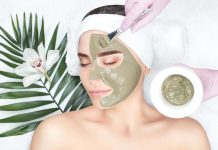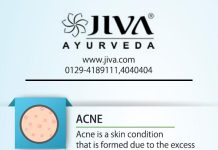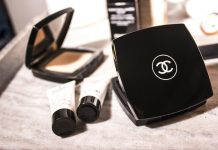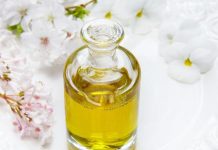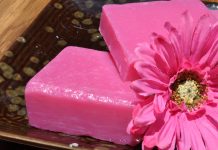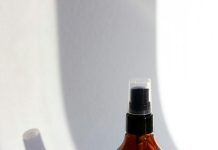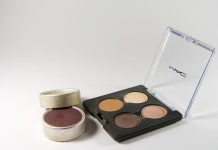In the quest for flawless skin, dark spots often stand as stubborn reminders of sun-soaked days, hormonal changes, and the inevitable march of time. These unwelcome guests can mar even the most meticulous skincare routine, leaving many of us searching for that elusive solution. Enter the world of dark spot correctors—those tiny bottles of promise, each claiming to be the miracle elixir for a clearer, more even complexion. But with a myriad of options flooding the market, how do you separate the truly effective from the merely hopeful? In this article, we delve into the science, ingredients, and real-world results to uncover the most effective dark spot correctors that actually deliver on their promises. Join us as we illuminate the path to brighter, more radiant skin.
Understanding Dark Spots: Causes and Types
Dark spots, often referred to as hyperpigmentation, can emerge due to a variety of factors. One of the primary causes is sun exposure, which triggers an overproduction of melanin in the skin. Additionally, hormonal changes, such as those experienced during pregnancy or while taking birth control pills, can also lead to these unwanted marks. Other common contributors include acne scars, aging, and skin injuries.
There are several types of dark spots, each with distinct characteristics:
- Melasma: Typically caused by hormonal changes and often appearing as large patches on the face.
- Post-inflammatory Hyperpigmentation (PIH): Results from skin injuries or inflammation, like acne or eczema, leaving behind darkened spots.
- Sunspots: Also known as solar lentigines or liver spots, these are usually a result of prolonged sun exposure and appear as small, darkened areas.
Understanding the root cause and type of dark spots is crucial in selecting the most effective treatment and achieving clearer, more even-toned skin.
Key Ingredients for Fading Dark Spots
When it comes to tackling dark spots, certain ingredients have proven to be remarkably effective. Here are some of the key players you should look for in any dark spot corrector:
- Vitamin C: Known for its brightening properties, Vitamin C helps to lighten hyperpigmentation and promote an even skin tone.
- Niacinamide: This form of Vitamin B3 reduces inflammation and can help to fade dark spots while also improving the skin’s barrier function.
- Hydroquinone: Often referred to as the gold standard for fading dark spots, hydroquinone works by inhibiting the enzyme responsible for melanin production.
- Alpha Hydroxy Acids (AHAs): Ingredients like glycolic acid and lactic acid exfoliate the skin, speeding up cell turnover and helping to fade dark spots more quickly.
- Retinoids: These Vitamin A derivatives accelerate cell turnover and can significantly improve the appearance of dark spots over time.

Dermatologist-Approved Dark Spot Correctors
When it comes to fading those stubborn dark spots, dermatologists have a few go-to products that consistently deliver results. These dark spot correctors are formulated with potent ingredients that target hyperpigmentation at its core. Here are some key ingredients you should look for:
- Vitamin C: Known for its brightening properties, Vitamin C helps to reduce the appearance of dark spots while protecting the skin from further damage.
- Hydroquinone: A powerful skin-lightening agent, hydroquinone is often recommended by dermatologists for its efficacy in reducing hyperpigmentation.
- Retinoids: These Vitamin A derivatives not only help to fade dark spots but also promote cell turnover, giving your skin a smoother, more even texture.
- Niacinamide: This form of Vitamin B3 helps to lighten dark spots and improve skin elasticity, making it a popular choice in many skincare routines.
For best results, dermatologists often recommend combining these ingredients with a good sunscreen to prevent further sun damage and maintain your skin’s newfound clarity. Always consult with a professional to determine the best treatment plan for your specific skin type and concerns.

Over-the-Counter Solutions That Deliver Results
When it comes to addressing dark spots, over-the-counter solutions offer a convenient and effective approach without the need for a dermatologist visit. Here are some of the top contenders that have proven to deliver noticeable results:
- Vitamin C Serums: Known for their brightening properties, these serums can reduce the appearance of hyperpigmentation and even out skin tone.
- Retinol Creams: Retinol accelerates cell turnover, helping to fade dark spots and improve skin texture.
- Niacinamide Products: This versatile ingredient not only lightens dark spots but also strengthens the skin barrier and reduces inflammation.
- Hydroquinone Treatments: Often considered the gold standard, hydroquinone lightens dark spots by inhibiting melanin production, though it should be used with caution.
- Alpha Hydroxy Acids (AHAs): AHAs exfoliate the skin, removing dead skin cells and revealing a more even complexion underneath.


